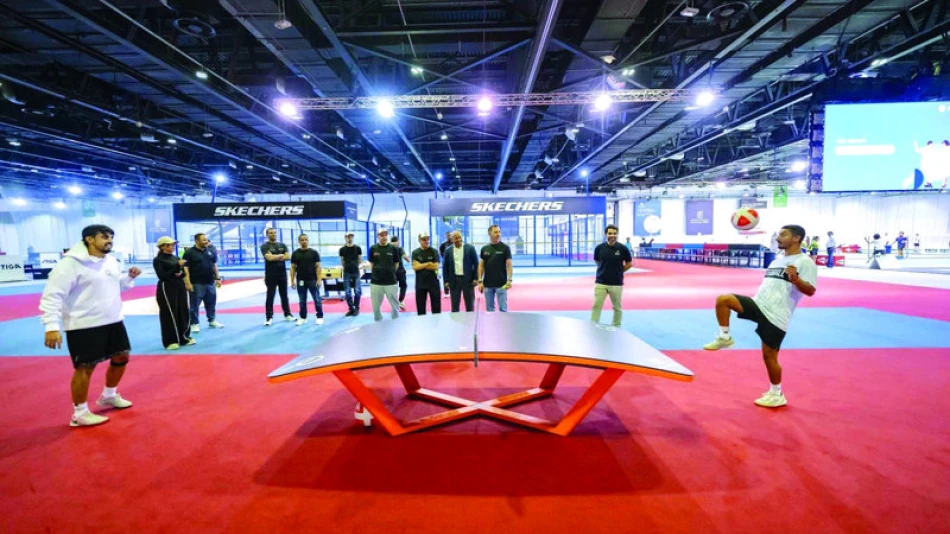
Dubai Sports World Kicks Off Tomorrow: Exciting Lineup of Athletic Events
Dubai's Indoor Sports Paradise Opens as City Doubles Down on Year-Round Fitness Strategy
Dubai World of Sports launches tomorrow at the Dubai World Trade Centre, running through September 2nd in what represents the emirate's most ambitious attempt yet to combat the summer sports drought that plagues Gulf cities. The fully air-conditioned mega-event offers nine different sports and free fitness facilities, signaling Dubai's determination to maintain its active lifestyle brand even during the punishing summer months when outdoor activities become nearly impossible.
Breaking the Summer Sports Barrier
The collaboration between Dubai World Trade Centre and Dubai Sports Council addresses a fundamental challenge facing Gulf cities: how to maintain athletic engagement when temperatures soar above 45°C (113°F) for months. Unlike seasonal sports programs elsewhere, this initiative runs during the peak of summer, when traditional outdoor facilities become unusable.
The event features football, basketball, padel, volleyball, cricket, tennis, badminton, table tennis, and pickleball, alongside a state-of-the-art fitness center with free access to strength and conditioning equipment. A dedicated children's zone with games and creative activities ensures family participation.
Strategic Positioning in Regional Sports Tourism
This move places Dubai ahead of regional competitors in addressing climate-related sports infrastructure challenges. While Qatar invested heavily in outdoor cooling technology for the 2022 World Cup, Dubai's approach focuses on creating sustainable, year-round indoor alternatives that don't require massive energy expenditure.
The Indoor Marathon Revolution
The program launches with the "DSW Run IN," billed as Dubai's first indoor half-marathon. This concept could revolutionize distance running in extreme climates, potentially attracting international runners who typically avoid the Gulf region during summer months. The controlled environment eliminates weather variables while maintaining competitive standards.
Economic and Tourism Implications
The timing suggests a calculated effort to boost summer tourism and resident retention. Dubai traditionally sees visitor numbers drop significantly during summer months, with many expatriate residents traveling abroad. By creating compelling indoor sports infrastructure, the city aims to reduce this seasonal exodus while attracting sports tourists from similarly hot climates.
The free fitness center access represents a significant investment in community health, potentially reducing healthcare costs while building brand loyalty among residents who might otherwise consider relocating due to climate constraints.
Global Context and Future Implications
As climate change intensifies heat waves globally, Dubai's indoor sports model could become a template for cities worldwide. Singapore has successfully implemented similar climate-controlled sports facilities, while cities in the American Southwest are beginning to grapple with similar challenges.
The success of this initiative could influence Dubai's bid for future international sporting events, demonstrating the city's ability to host competitions regardless of external weather conditions. This capability becomes increasingly valuable as global sporting calendars face disruption from extreme weather events.
For Dubai's sports industry stakeholders, the event represents both opportunity and test case. Strong participation could justify expanded investment in climate-controlled facilities, while poor uptake might signal the need for different approaches to summer sports programming in extreme climates.
Most Viewed News

 Sara Khaled
Sara Khaled






